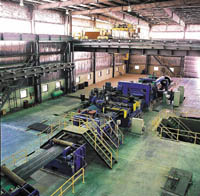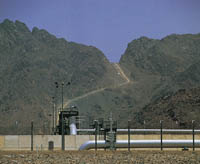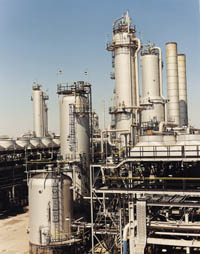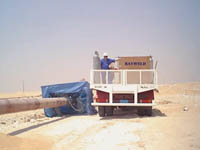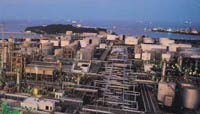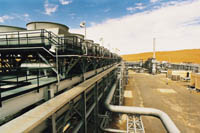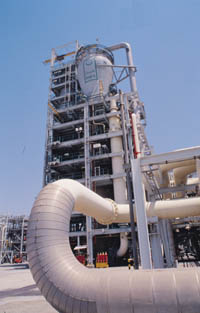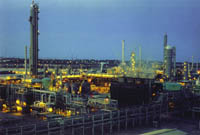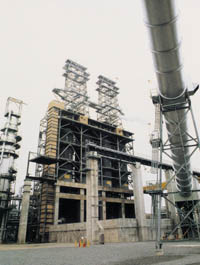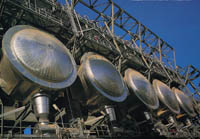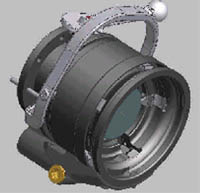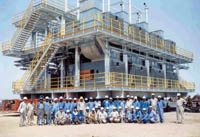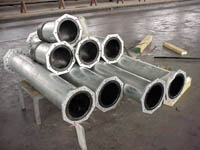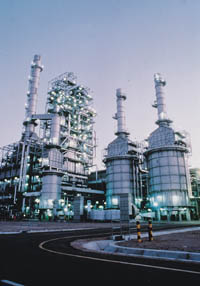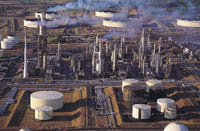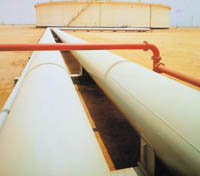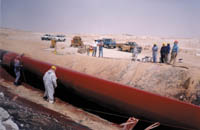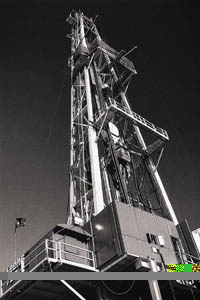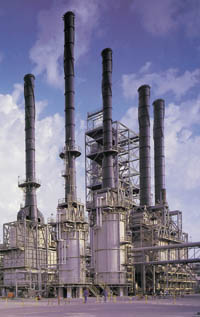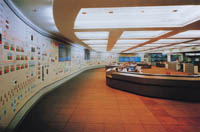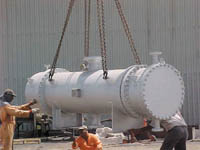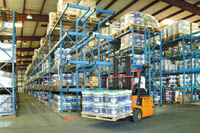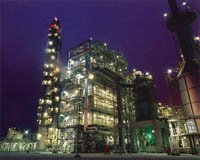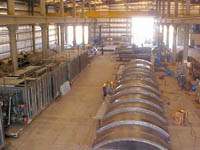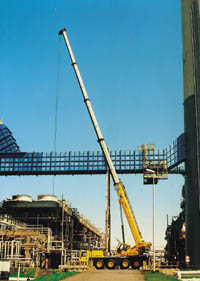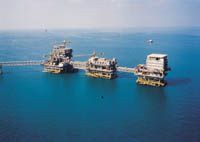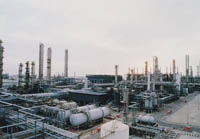
 Saudi Aramco is now managing and delivering information more efficiently while controlling costs
Saudi Aramco is now managing and delivering information more efficiently while controlling costs
WITH THE Internet and e-commerce set to power a fresh wave of economic growth in the Middle East, Saudi Aramco is gearing up to meet the considerable challenges of fully utilising Internet-based e-commerce.
Business-to-business e-commerce, through which companies can reap major economic benefits involving suppliers, is still at the discovery stage, said Saudi Aramco Information Technology (IT) vice president and chief information officer Ibrahim Mishari.
Companies can achieve major benefits by determining which successful traditional business practices can be ''reshaped'' for the Internet age, he said.
Saudi Aramco is now actively exploring e-commerce as part of its expanding e-business strategy to adapt and implement the technology wherever it is relevant and advantageous.
By enhancing its ability to disseminate information quickly and make it available in an intelligent form, Saudi Aramco is hoping to achieve competitive advantages.
For example, business-to-business e-procurement will be available at Saudi Aramco as part of the company's ongoing SAP implementation, Mishari said.
By harnessing and deploying technology, Saudi Aramco is now adding value in production processes, managing and delivering information more efficiently and controlling costs.
''We have embraced the Internet as a source for powering our people's knowledge. Our people have access to worldwide resources of information that help them in finding solutions to their daily work challenges - rapidly and effectively,'' Mishari said.
Saudi Aramco experienced a virtual net explosion in 1998 when company infrastructure and Internet application technology had really started to develop.
Saudi Aramco's Intranet has become a centre of knowledge sharing within the company, connecting more than 30,000 employees throughout Saudi Arabia.
The oil and gas industry as a whole is actively pursuing e-commerce opportunities for its competitive advantage. Activities include selling oil over the Internet to building Internet-based business-to-business relationships with suppliers, Mishari said.
Saudi Arabia and the Gulf states are also moving forward with major investments to build modern information and communications infrastructure.
Saudi Aramco has also benefitted from its experiences with the Electronic Data Interchange, developed in the early 1990s as an electronic link with a number of suppliers, to help set up an e-commerce infrastructure.
Saudi Aramco sensed the promise of IT in the early 1990s, as a solution to communications and information processing challenges faced by a company as diverse as Saudi Aramco.
The company started to develop a state-of-the-art infrastructure required to support both Intranet and Internet capabilities.
Fibre optic cables were laid, and still are. Powerful server configurations have been installed and desktop computers have been distributed throughout the enterprise to accommodate the client/server architecture.
Mishari said Saudi Aramco had successfully implemented a pilot e-shopping system based on catalogues with some vendors, enabling on-line purchases of commodity items such as books and subscriptions.
Saudi Aramco has also been actively involved with national e-commerce committees.
E-commerce challenges are ''simpler to name than to solve,'' he acknowledged, citing the facts that the Internet is not owned by anyone and that no one governs its operations.
The company has since made major advances in deploying network communication and information and data management, both internally and externally.
Throughout its history and across its many disciplines, Saudi Aramco has had to face up to the most stringent challenges, since the initial search for oil in the 1930.
Today's e-commerce challenges, while offering promise, will also be overcome through persistence and understanding for what will work for the company.










































































